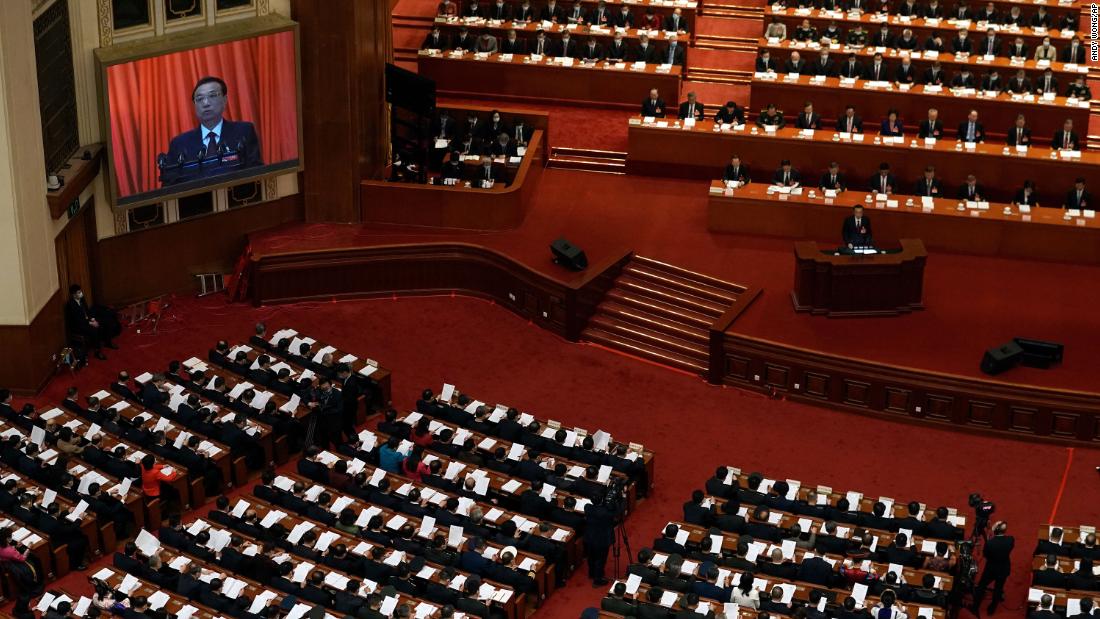Members of the National People’s Congress in Beijing voted 2,895 in favor of the proposal, with no votes against and one abstention.
The approval of the “draft decision” was considered almost inevitable after the Chinese government announced plans to overhaul Hong Kong’s electoral system earlier this month. The votes in the NPC are considered largely ceremonial, with parliament not being known for voting against legislation presented by the country’s leaders.
“When we talk about patriotism, we are not talking about the abstraction of loving a cultural or historical China, but loving the People’s Republic of China currently under the leadership of the Chinese Communist Party,” Song Ru’an, deputy commissioner of The Ministry of Foreign Affairs of China in Hong Kong, told reporters this week at a briefing on the change in the law.
“Patriots must respect the Chinese Communist Party,” he added.
The decision includes a plan to change the size and composition of the city’s Legislature, increasing the number of seats from 70 to 90, thus reducing the overall percentage of democratically elected officials.
The Electoral Committee, the body currently responsible for selecting the city’s chief executive, will be expanded from 1,200 to 1,500 members, and will have the authority to nominate candidates for the legislature, as well as the power to nominate about a third of the body’s seats. The remaining third will be occupied by so-called functional constituents, which are chosen by bodies of commerce and industry.
Speaking last week, NPC spokesman Zhang Yesui said that the 2019 unrest, during which Hong Kong was shaken by violent anti-government protests, “showed that the electoral system needs to be improved” to guarantee “patriotic government. “.
In the wake of the unrest, pro-democracy candidates won a landslide victory in the local elections and were expected to increase their performance in the parliamentary elections scheduled for September 2020.
Prosecutors say the opposition intended to win enough seats to block the government’s budget and potentially force the chief executive to resign, a plan that was in line with the city’s constitution, but has since been considered contrary to a law on national security imposed on the city last year by Beijing.
If they avoid the potential decade or more of imprisonment that the law provides for those guilty of “subversion”, activists and ex-legislators being prosecuted are likely to find it difficult to re-enter politics under the new requirements.
Last year, several candidates were prevented from running for office by returning officials, based on a perceived lack of patriotism or alleged violation of national security law, which also criminalized “secession” and “collusion with foreign forces” .
Speaking this week, Hong Kong leader Carrie Lam said that “there is no so-called international standard of democracy. Each democracy has to look at the appropriate context for that particular country or place.”
“We are improving the electoral system by ensuring that whoever governs and administers Hong Kong in the future is someone who loves the country, who loves Hong Kong,” he added.
